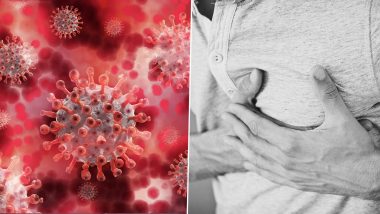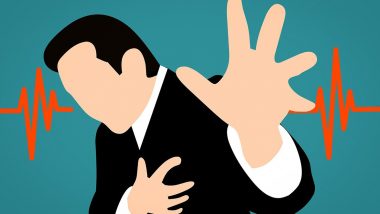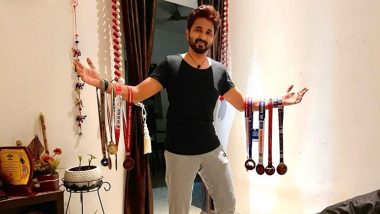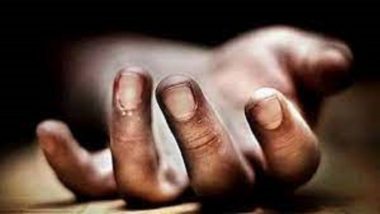New Delhi, September 23: The devastating COVID-19 pandemic has been a nightmare for the whole world. In fact, India ranks third in terms of the number of total cases and death count. Now, the pandemic is shifting towards endemic, it is true, however, COVID is not completely eradicated and therefore, we are way behind yet to take the precautionary methods for granted and therefore, not wearing a mask in public, or not taking the booster shot after the two doses of primary vaccine shots should not be the scenario.
There is multiple misinformation surfacing around social media that people have been reporting cases of heart inflammation or heart attack after the COVID-booster shots. On the other hand, it is of utmost importance that we take booster shots to prevent ourselves from re-infection with COVID which can be fatal for anyone.
World Heart Day, which falls on September 29, is celebrated annually to spread awareness about the importance of keeping the heart fit as it's one of the most important organs that deliver oxygen and nutrients to cells and also removes waste products. Any sign of heart trouble should be taken seriously as it is linked to one's longevity and survival. COVID-19 Infection Increases Risk of Long-term Brain Problems: Study.
Keeping in mind the theme of World Heart Day this year, 'USE HEART FOR EVERY BEAT' and spreading awareness expert highlight that there is no cause-effect relationship between cardiac ailments like myocarditis or inflammation of the heart and COVID vaccine or booster shots furthermore, several studies done across the world has shown people who are vaccinated have a much lower risk of getting other serious complications caused by Covid-19.
Dr Ajay Madhukar Naik who is a renowned cardiologist at Marengo CIMS Hospital, Ahmedabad spoke on the subject and said, "As per the data provided by The Indian Heart Association, Indians tend to suffer from heart ailments at an earlier age than other demographics, often without warning. Contrary to the earlier belief that heart-related issues impact only the elderly population, it is found that 50 per cent of all heart attacks in Indian men occur under 50 years of age and 25 per cent of all heart attacks in Indian men occur in their 30s.
Apart from hereditary reasons, unhealthy eating habits and a sedentary lifestyle for a long period can lead to blockages in the coronary (heart) arteries. Everyone needs to understand that smoking, tobacco consumption, inordinate alcohol consumption, continuing desk jobs for years and not taking out time for regular physical exercise - all contribute to heart disease.
In addition, emotional and mental stress for a very long span and inadequate/improper sleep hours also take their own toll. These factors were very much prevailing during the COVID pandemic, they have added to the burden of cardiovascular ailments apart from the damage that COVID infection did to the heart."
He added, "The significant rise of heart ailments and cardiac deaths in the COVID pandemic and post-pandemic era may be related to the weakening of the heart muscles and other detrimental effects of a sedentary lifestyle owing to "work from home" during the lockdowns. Both psychological stress and relative physical inactivity contribute to adverse effects on the heart. The adverse impact of Covid induced damage on the heart may have long-term sequelae."
Speaking about the association of the COVID vaccine or the booster shots with cardiovascular disorders, Dr. A.M Deshmukh, President, Microbiologist Society, India said, "COVID has undoubtedly increased the risk for cardiovascular disorders. People with lifestyle diseases, like Diabetes, Cholesterol Hypertension, etc., if infected with COVID-19, are at an elevated risk for developing cardiac problems or experiencing a heart attack and even death; compared to those who don't have any co-morbid health conditions.
Currently, all 4 boosters: Covishield, Covaxin, Corbevax, and Sputnik Light have shown promising results against the latest Omicron variant and its subvariants. Over time, the efficacy of two primary doses wanes, and to restore the effectiveness of the protection against the novel coronavirus, getting your 'precautionary dose' is crucial." World Alzheimer's Day 2022 — Understanding the Basics: What Does This Neurologic Disorder Look Like? How Long Can a Person Live with Alzheimer’s? Everything You Need to Know.
With an aim to accelerate the booster shots intake, the Government announced free booster shots for everyone, and now, the 75-day of free booster dose for everyone initiative is also nearing its end, still leaving behind three-fourths of the population who have not administered the booster dose yet. This is the need of the hour for public health experts, doctors, vaccine manufacturers, and the government to work in tandem and reiterate the importance of booster doses.
The reluctance for taking the booster dose needs to be addressed by experts across the media and social media platforms. Booster doses that are available in India are safe with no other side effects except a few people might observe normal fever or body aches which are common after any kind of vaccination.
With schools, colleges, and offices getting back to normalcy, public exposure is again picking up along with the chances of reinfection, especially for children and young adults who might carry the infection to home and that can cause serious concern for elderly members of the family. Booster shots are not yet mandated by the Government, but being responsible citizens of the country, we all should prioritize getting jabbed with the booster shot as early as possible.
(This is an unedited and auto-generated story from Syndicated News feed, LatestLY Staff may not have modified or edited the content body)













 Quickly
Quickly




















